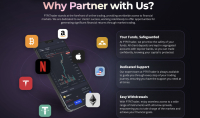The evolution of vacancy offers
Vacancy offers, traditionally seen as straightforward job openings, have become multifaceted in today's job market. Gone are the days when a job seeker would find an ad in the newspaper, apply with a printed resume, and await a call for an interview. The digital age has revolutionized this process, bringing both opportunities and challenges.
The rise of online job portals and professional networking sites like LinkedIn has made job searching more accessible. Job seekers can now apply to multiple positions with just a few clicks, increasing their chances of landing a job. However, this convenience comes with a downside. The ease of application has led to a surge in the number of applicants per vacancy, making it harder for individuals to stand out.
Employers, on the other hand, have benefitted from a broader talent pool. They can now reach candidates from different geographical locations, offering remote work opportunities that were previously unthinkable. This has particularly been accelerated by the COVID-19 pandemic, which forced many companies to adapt to remote work. As a result, vacancy offers now frequently include options for remote or hybrid work arrangements, reflecting the new normal in the workforce.
The impact of technology on recruitment
Technology has not only changed how vacancy offers are advertised but also how candidates are evaluated. Artificial intelligence (AI) and machine learning algorithms are increasingly being used to screen resumes and conduct initial interviews. These technologies can quickly sift through large volumes of applications, identifying candidates who best match the job criteria.
While this automation streamlines the hiring process, it also raises concerns about fairness and bias. AI systems are only as good as the data they are trained on, and if this data is biased, it can lead to discriminatory practices. For instance, if an AI system has been trained on data that favors certain demographics over others, it may inadvertently filter out qualified candidates from underrepresented groups.
To mitigate these issues, companies must ensure that their AI systems are regularly audited and updated to eliminate biases. Additionally, human oversight remains essential to complement AI decision-making, ensuring that vacancy offers are inclusive and fair.
The importance of employer branding
In a competitive job market, how a company presents its vacancy offers can significantly impact its ability to attract top talent. Employer branding has become a critical aspect of recruitment strategies. Companies must not only highlight the roles they are offering but also convey their values, culture, and mission.
A strong employer brand can differentiate a company from its competitors, making it more attractive to potential employees. This involves showcasing the company's commitment to employee well-being, professional development, and diversity and inclusion. Transparency in these areas can build trust and attract candidates who align with the company's values.
Moreover, employer branding extends beyond the recruitment phase. Companies must continue to uphold their promises once candidates are hired. Employee reviews and testimonials on platforms like Glassdoor can significantly influence how vacancy offers are perceived by job seekers. Positive reviews can enhance a company's reputation, while negative ones can deter potential applicants.
The role of soft skills in vacancy offers
As the job market evolves, there is a growing emphasis on soft skills in vacancy offers. Technical skills and qualifications are no longer the sole determinants of a candidate's suitability for a role. Employers are increasingly looking for individuals who possess strong communication, problem-solving, and teamwork abilities.
This shift reflects the changing nature of work, where collaboration and adaptability are crucial. In a globalized economy, employees must be able to work effectively with diverse teams, navigate complex problems, and communicate clearly across different platforms.
Vacancy offers now often include detailed descriptions of the soft skills required for the role, emphasizing their importance. Job seekers must, therefore, highlight these skills in their applications, providing concrete examples of how they have demonstrated them in previous roles.
Navigating the gig economy
The gig economy has introduced a new dimension to vacancy offers. With the rise of freelance and contract work, traditional full-time employment is no longer the only option for job seekers. Platforms like Upwork and Fiverr have made it easier for individuals to find gig work, offering flexibility and autonomy.
For employers, the gig economy provides access to a diverse talent pool without the long-term commitment of full-time hires. This can be particularly advantageous for project-based work or tasks that require specialized skills.
However, the gig economy also presents challenges. Gig workers often face job insecurity, lack of benefits, and inconsistent income. Employers must consider these factors when structuring their vacancy offers, ensuring fair compensation and support for gig workers.
Embracing the future of vacancy offers
The landscape of vacancy offers https://fast-service.com.pl/en/vacancy-offers/ is continuously evolving, driven by technological advancements, changing societal values, and the globalized economy. Both employers and job seekers must adapt to these changes, embracing new opportunities and addressing emerging challenges.
For employers, this means leveraging technology responsibly, building strong employer brands, and valuing both technical and soft skills. For job seekers, it involves staying updated with industry trends, honing their skills, and being open to diverse employment opportunities, including gig work.
As we move forward, the key to success lies in adaptability and continuous learning. By understanding the dynamics of vacancy offers and navigating the changing job market effectively, both employers and job seekers can thrive in the future of work.















